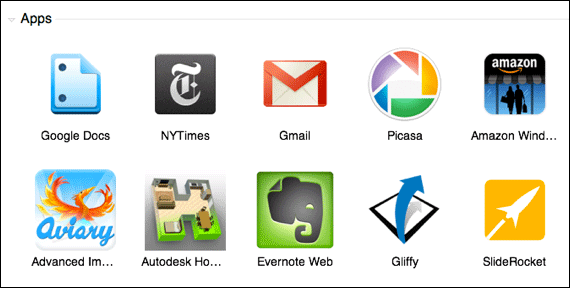On Tuesday, Google stuck it to Microsoft and Apple by showcasing a test version of Chrome OS, the Internet-focused operating system it officially unveiled plans for back in July of last year.
New Web Store

Although the project has faced several delays, Google was far from shy at the event. They showcased a new store for applications run in a Web browser that purportedly makes it easier for consumers to find applications in which they are interested (like Apple’s iPhone). Web publishers will also find it easier to charge for these very applications and in turn allow users admission to far more than can be accessed via the company Web site.
Three publishers (Electronic Arts, Amazon, and The New York Times) used the new store to demonstrate versions of their applications. Amazon displayed its Kindle application as well as Window Shop (which is reminiscent of an iPad application). Meanwhile, The New York Times revamped its web content so viewers can search for articles by browsing through image galleries or in the order selected by editors.
Prototype Laptops to be Distributed
 When it came time to fess up, Google admitted that it would not, in fact, be able to keep its promise made in 2009 that netbooks running the software would premier in stores in 2010. Still, Google consoled event attendees that it, to select users, would begin distributing prototype laptops running the famed OS.
When it came time to fess up, Google admitted that it would not, in fact, be able to keep its promise made in 2009 that netbooks running the software would premier in stores in 2010. Still, Google consoled event attendees that it, to select users, would begin distributing prototype laptops running the famed OS.
The PCs will not require software installation and will not store data internally, and instead rely on applications delivered via the Internet. This is to make accessing various files from various systems much easier than with any existing OS. The name Verizon was dropped when it was added that the PCs in question would come with 3G wireless capabilities.
Partying With the Big Boys
With these and other innovations, Google aims to join the party at which Microsoft and Apple are already in attendance as the third viable OS.
Today’s popular systems (looking at you, Microsoft and Apple) were created long before the web. At the time of its unveiling on Google’s official blog back in 2009, Google Chrome OS was to be the first OS created for the Web. Since this announcement, smartphones (both iPhones and Google’s brainchild Android) have become mainstream, and it appears that Google is more playing catch-up than revolution with planning Android-powered tablets (in view of the iPad’s rapid rise in popularity). Chrome OS, in this light, looks like a one-up.
Danny Sullivan, editor of industry blog Search Engine Land, claims to think it likely that Android and Chrome OS would grow to resemble each other in the future. Consumers may face confusion, and Apple and Microsoft some competition.
Maria Rainier is a freelance writer and blog junkie. She is currently a resident blogger at First in Education, where recently she’s been researching different online music degrees and blogging about student life. In her spare time, she enjoys square-foot gardening, swimming, and avoiding her laptop.



